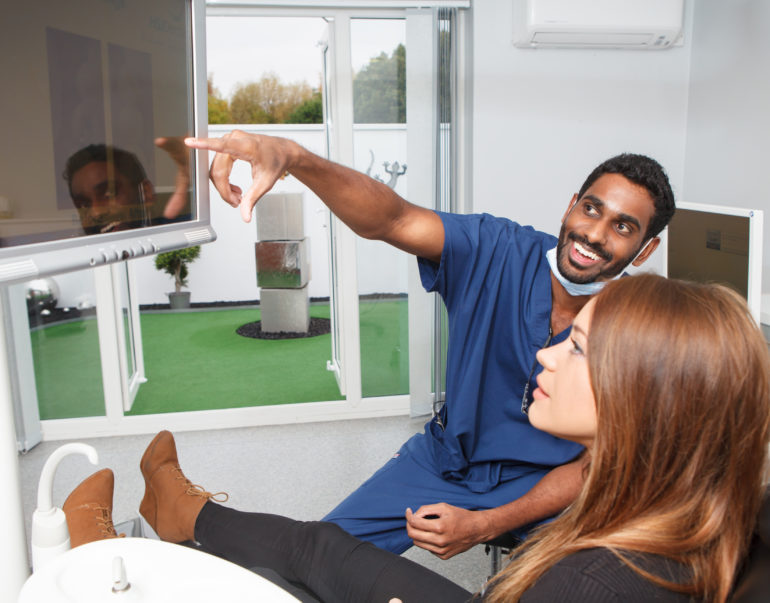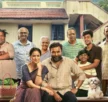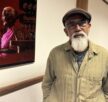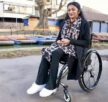

Mental health; the stigma that exists in the Tamil community
- 23rd November 2016
- POST IN :SOCIETY
According to official reports, one in four people in the world have – or will, at some point in their lives – suffered from mental health problems. Yet, the same statistics tell us that only one-third of those affected ever seek medical treatment. While this is indeed sad news, it is, however, in no way surprising, considering the stigma attached to mental health issues.
Especially in the South Asian room, mental health comes with its own cycle of shame. In light of this, “Thamarai” recently sat down with dentist Dr Andrew Logeswaran to talk about awareness of mental health within the Tamil community.
Although a highly successful dentist by profession – Dr Logeswaran has recently been shortlisted for Best Young Dentist 2016 at The Dentistry & Private Dentistry Awards – his true focus and interest lie in raising mental health awareness.
“I am passionate about dentistry and I take great satisfaction from my profession. I am also very grateful to have been shortlisted as a finalist at the Dentistry Awards – it is a real honour.”
However, despite the shortlisting and his successful career as a dentist, he says that his focus, for some time, has been to raise awareness of mental health issues in the Tamil community.
“Talking about mental health is not easy. Let’s face it. The word ‘mental’ does not conjure up pleasant thoughts in anyone’s mind, does it?
“Mental health is becoming more and more of an issue within the Tamil community. Personally, and through the media, I know of a handful of Tamils who have committed suicide in the past few years due to mental health issues. So why is it so hard to talk about it without feeling shame? It’s easy to discuss an illness that affects our general health like the flu or a broken arm, but what about when our mental health is the target? Why is it so hard to open up and get the necessary help?
“There is so much stigma around mental health – in Western society, but especially in our own community. And because of that feeling of shame and reluctance to talk about the effects of mental health issues, people are too scared to seek help – scared to be treated differently and scared to be made an outcast of society.”
Dr Logeswaran’s campaigning for a better awareness of mental health, however, despite his doctor title, does not come from a medical standpoint but that of a regular person.
“I don’t claim to be a medical doctor. I’m here to speak as someone who has seen people around me suffer in silence. And I’m here as someone who has gone through his own share of problems.
“My first personal experience with mental health was at the age of 15 when I woke up in intensive care after a racially motivated assault against me. I woke up and the first thing I remember seeing is my family – in tears – praying for my life.
“Although the assault left me with very little physical wounds, the trauma of this ordeal took its toll on my mental health. Losing my memories, having to re-learn how to walk and having to miss a large chunk of school were some of the consequences. Following the incident, my parents noticed something in me was different, but I didn’t know what it was or what I should do about it. At that time, my parents decided that I might need professional help, so my GP referred me to a psychologist. Looking back, I can only think of that period as life changing. I feel like my life started again back then.
“Talking about what had happened to me, discussing the traumatic event and its effect on my mental health in an open and supportive environment with a professional helped me immensely. Being able to talk about what had happened to me without shame or embarrassment enabled me to come to terms with everything – my family life, my school life, my social life. From that moment on, everything changed. Without the help received back then, I’m certain I wouldn’t be where I am today. I may have ended up as another tragic and preventable statistic.
And that’s the whole point. Suicide is the biggest danger for people who suffer from mental health issues, but with the right treatment, this can be prevented. There is help available. Just as there is treatment available for a broken arm, there is treatment available for those who suffer from mental health problems.”
The first and arguably the most important step is to start a thoughtful, informed, and open discourse. Especially in our society, where weaknesses are looked down upon and fragilities are mocked, we need to start being more honest and supportive of each other.
“Anyone who has met me after the age of 15 will have no clue about what has happened to me or the effects that incident had on me. This will be the first time my friends will hear about it. For the past 16 years, I have felt ashamed to talk about this openly. But I believe that it’s time to break down those barriers – within me and within our society – and openly discuss mental health.
One thing I realised in my experience with mental health is that it affects not just the person with it, but everyone around them. And on the same note, getting help and treatment early on can lead to a greater quality of life for everyone involved. Not just the person with the illness.
What use is a community if they don’t help you when you need help? What use is a community if they aren’t there to support you when you’re low? No one should feel alone on something that affects everyone.”
For more information on mental health, and where and how to get help, visit http://www.rcpsych.ac.uk/healthadvice/translations/tamil.aspx






















